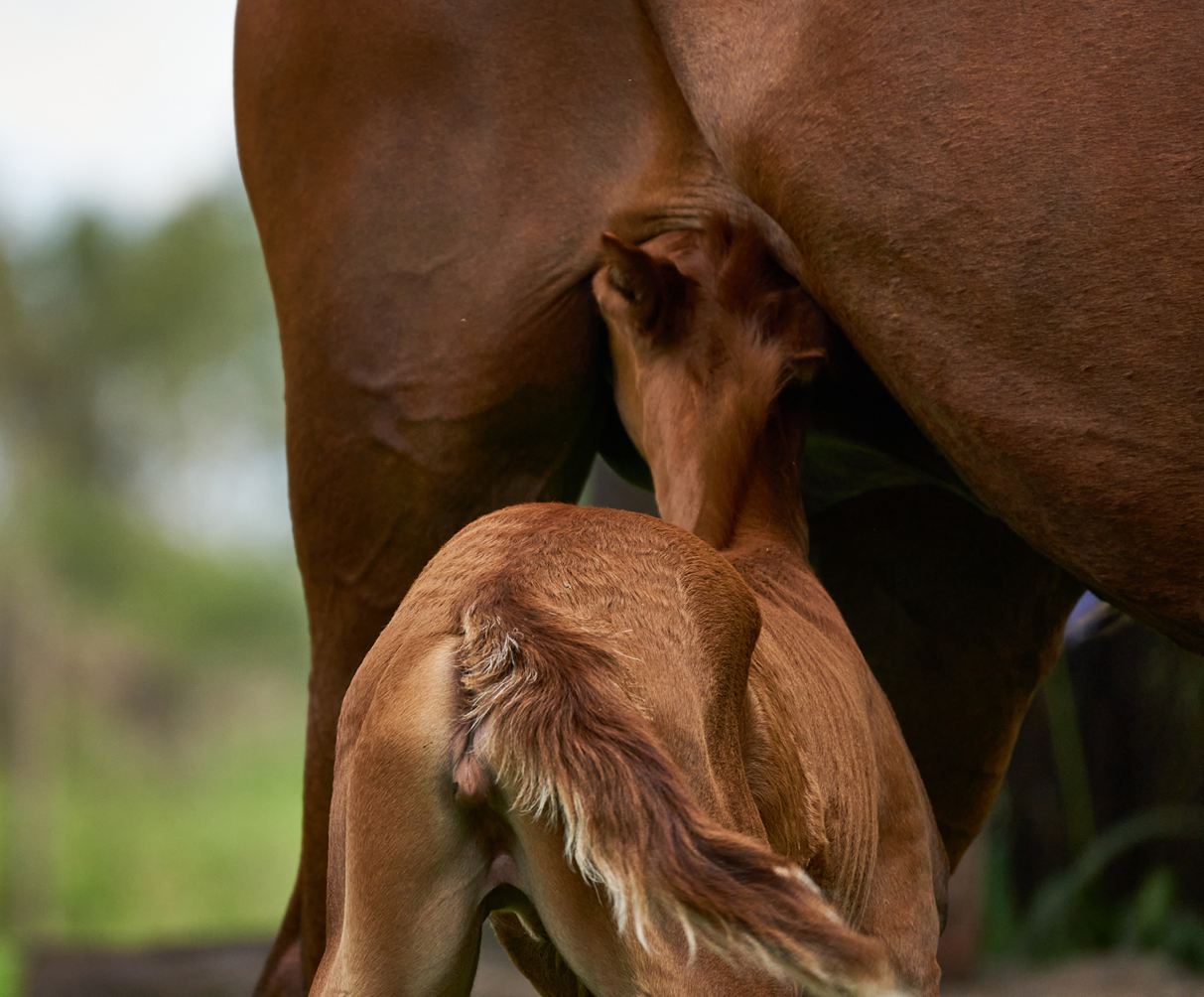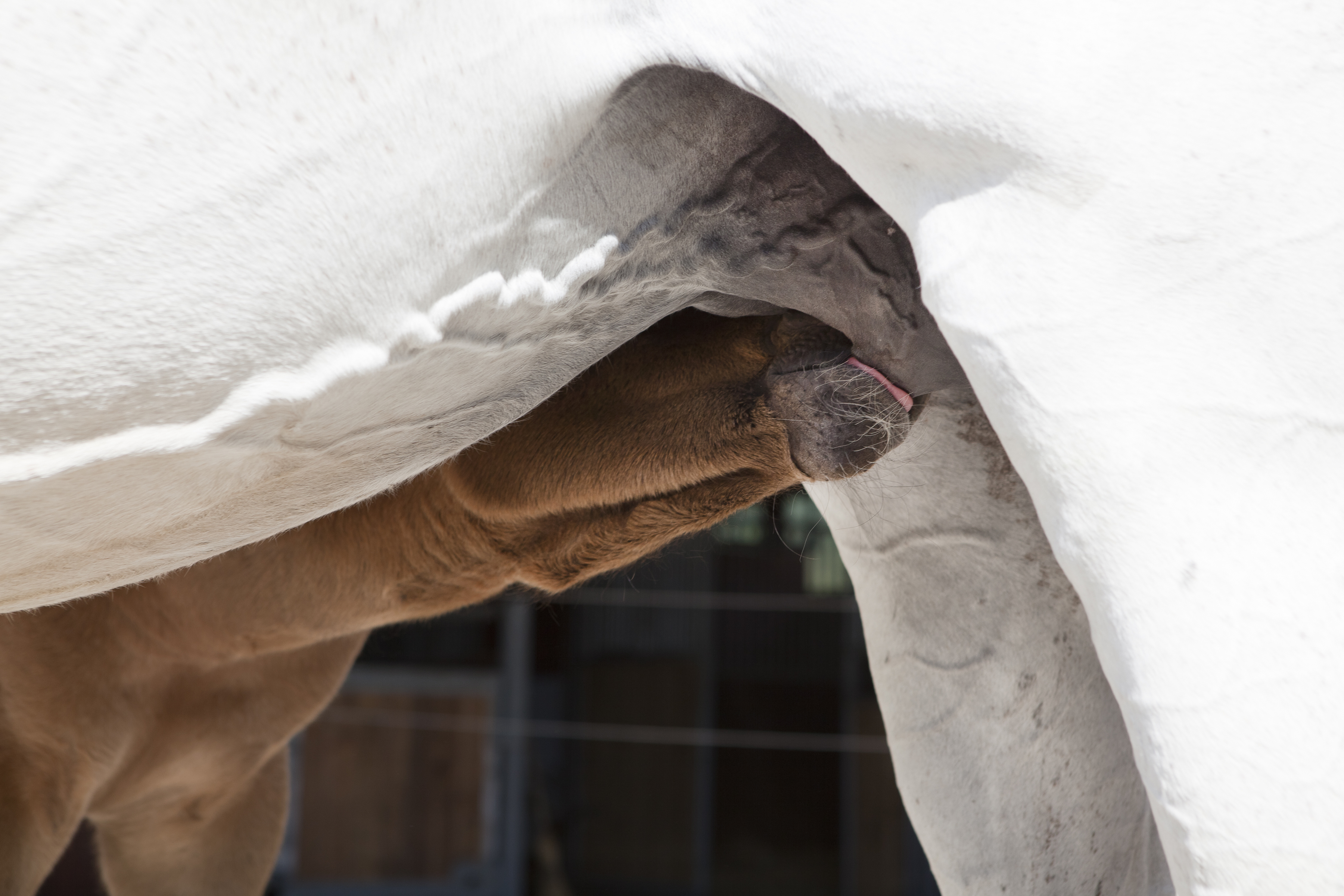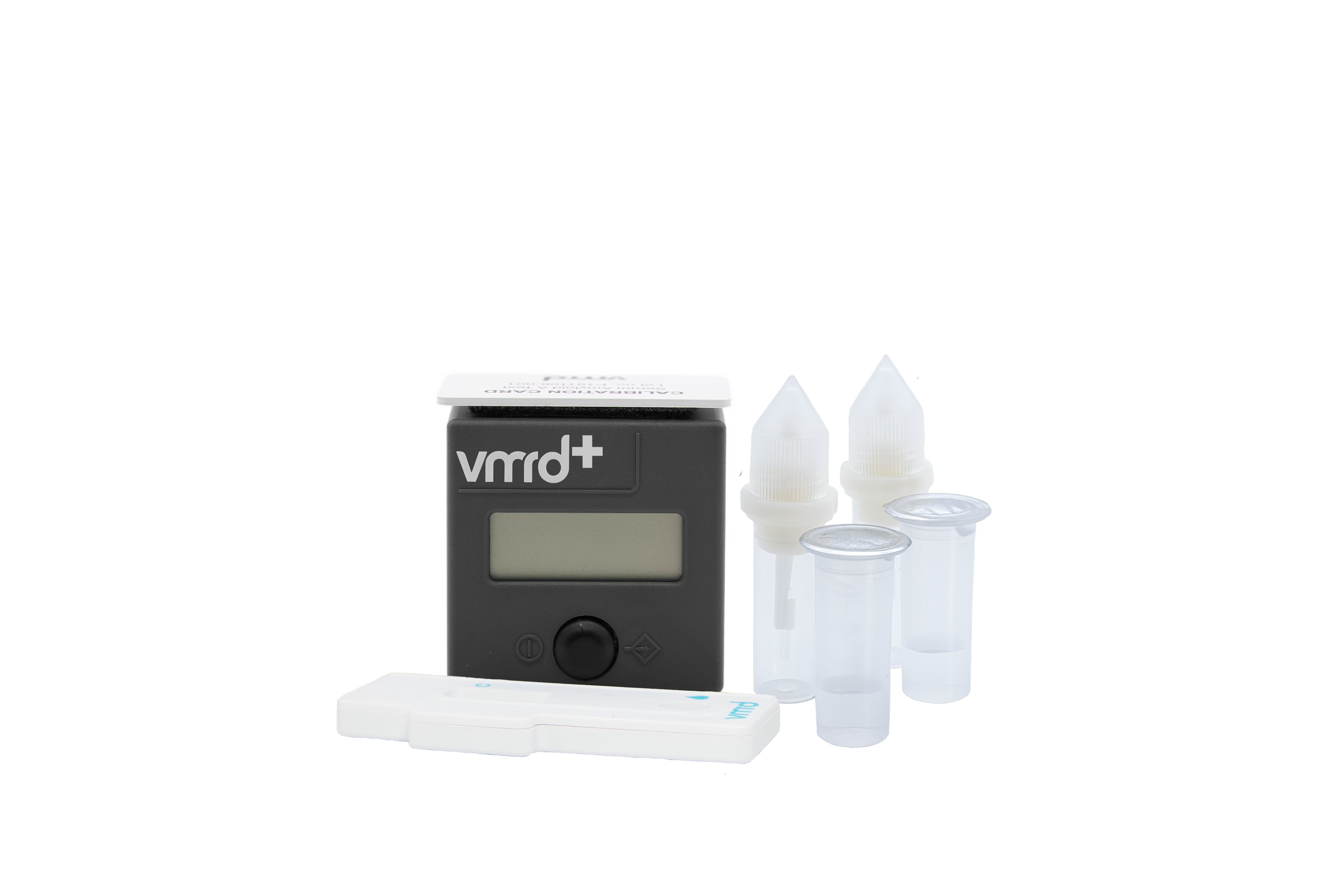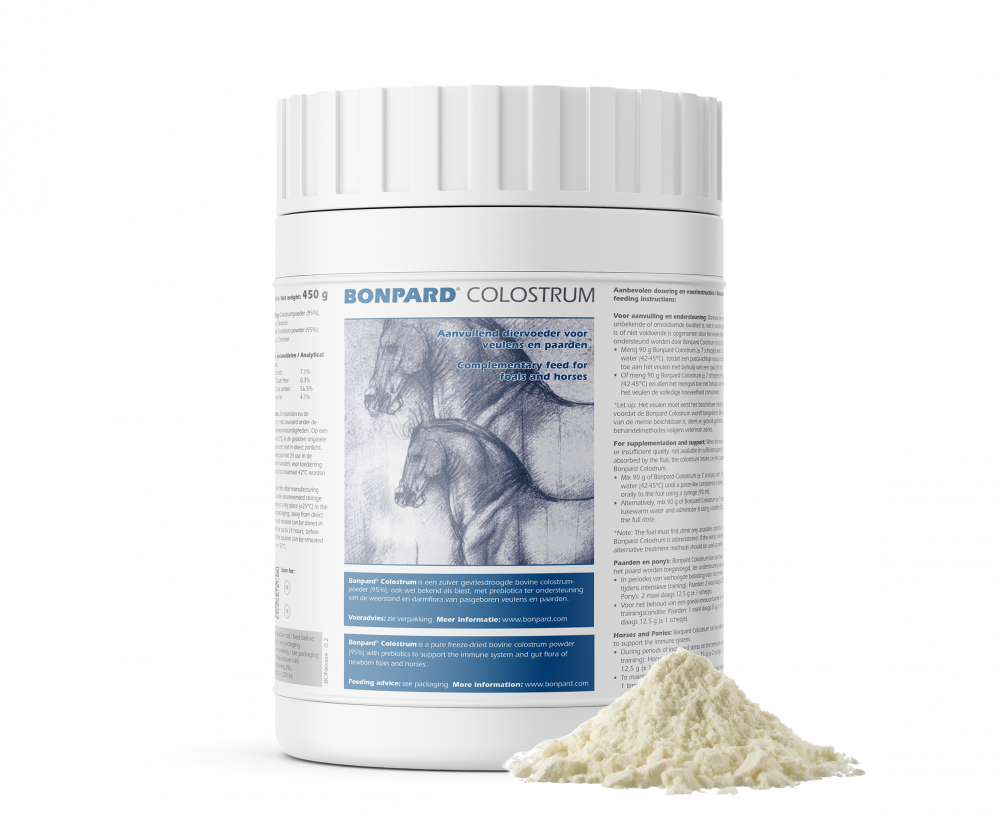
A successful start for a foal is highly dependent on sufficient intake of high-quality colostrum. In this blog, we discuss the production and quality of colostrum, as well as the assessment of immunoglobulin levels in the foal’s blood using the VMRD reader. Additionally, we cover relevant products that can be used in cases where the foal has not absorbed enough colostrum.
Intake of High-Quality Colostrum
Sufficient intake of colostrum with a high immunoglobulin content is essential for the newborn foal. The permeability of the foal’s intestines and the IgG concentration in the colostrum change rapidly after birth, making it crucial for the foal to consume at least 2 litres of good-quality colostrum within the first 24 hours of life.
The quality of colostrum can be determined based on its specific gravity. A specific gravity of 1060 indicates good quality colostrum.


High-Quality Colostrum
Colostrum is rich in immunoglobulins and essential nutrients. The diet of a pregnant mare significantly influences the quality and composition of colostrum. In the final months of pregnancy, a mare has an increased need for energy and protein. Additionally, she must consume sufficient amounts of vitamin E, selenium, and copper throughout gestation.
To meet the nutritional needs of the pregnant mare, a supplement or supplementary feed may be required, depending on the mare’s condition. A fat- and fibre-rich supplementary feed positively impacts the number of immunoglobulins in the colostrum. Moreover, fat- and fibre-rich feed benefits the mare’s digestive health, reducing the risk of fermentation disorders that can lead to abnormal faeces and colic.
Assessing the Foal’s Colostrum Intake
Once the foal has consumed colostrum, it is important to verify whether it has ingested a sufficient quantity of good-quality colostrum. This can be determined by measuring the IgG plasma concentration.
The VMRD reader can provide a quantitative result from a foal’s blood sample within 10 minutes. An early indication can be obtained by performing the IgG test 8-12 hours after birth. If the plasma concentration is lower than 400 mg/ml, this suggests that the foal may not have ingested enough colostrum.
However, plasma concentration may still rise, especially if the foal has just consumed colostrum before the blood sample was taken. Therefore, we recommend conducting a test from 18 hours onwards. If the concentration at that point is lower than 800 mg/ml, then the foal has not absorbed sufficient IgG.






Solutions for Insufficient Colostrum Intake
A low IgG plasma concentration can result from inadequate colostrum production by the mare or poor colostrum quality. If the mare experiences health issues, has passed away, or has rejected the foal, there may be no or insufficient colostrum available for the foal. The foal may also have physical issues, such as an underdeveloped suck reflex, hindering colostrum intake.
Regardless of the cause of the low immunoglobulin concentration, it is crucial to provide the foal with the necessary nutrients and antibodies.
If a test using the VMRD reader wihtin 18 hours indicates that the foal has not absorbed sufficient IgG, fresh or frozen colostrum can be offered to the foal or administered via a feeding tube. However, if the foal is older than 18 hours, plasma must be administered via an intravenous infusion to supplement the foal’s antibodies.
Bonpard Colostrum: A Colostrum Substitute
Recently, Bonpard Colostrum, a pure bovine colostrum (95%) with a prebiotic, has been introduced. This can be given as additional support to the newborn foal. For example, if early testing (8-12 hours after birth) shows that the IgG plasma concentration is slightly low, IgG levels can be supplemented with Bonpard Colostrum.
Mare’s Milk Substitute
If the mare produces too little milk over a prolonged period or if there is another situation where the foal does not receive enough mare’s milk, a milk replacer such as Bonpard Equimel can be used. Bonpard Equimel has a unique fatty acid composition, perfectly matching the natural levels in mare’s milk, making it an ideal milk substitute. It is highly palatable and easily digestible. Veterinarians have also reported that the risk of diarrhoea with Bonpard Equimel is minimal.
Would you like to know more about how we develop our feeds? You can read more about our product development.


Grovet Is Here for All Foals and You
A strong start for a foal begins with proper care for the lactating mare and close monitoring of the newborn foal. Grovet offers the VMRD reader for early detection of low IgG concentrations. Additionally, our range includes solutions for both oral and parenteral therapy, such as Bonpard Colostrum.
For more information about our products, please contact your account manager or email us at info@grovet.com.











